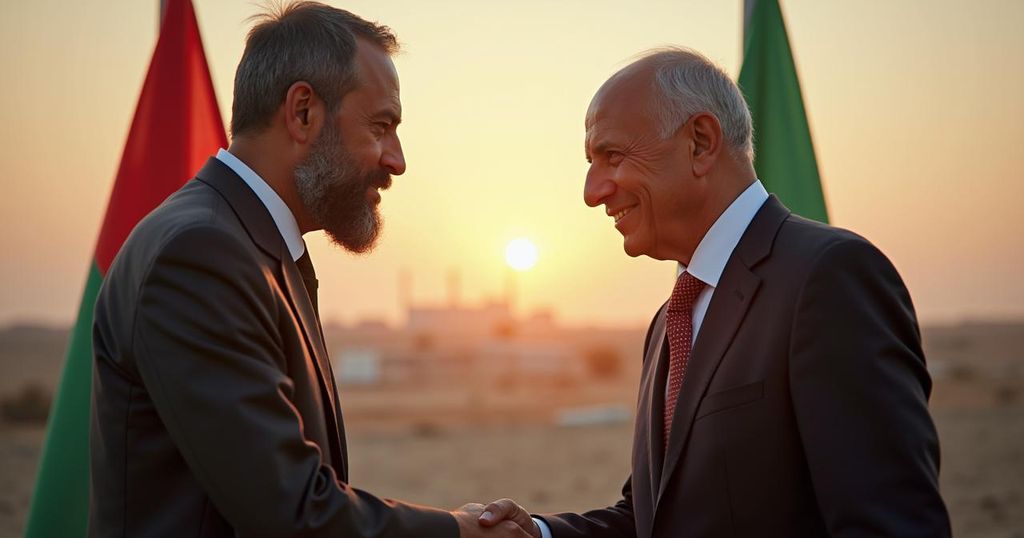Somalia, Eritrea, and Egypt Strengthen Security Cooperation Amid Regional Tensions

The presidents of Somalia, Eritrea, and Egypt met to strengthen security cooperation amidst rising tensions in the Horn of Africa, particularly concerning Somalia’s fight against al-Shabab. They agreed to enhance ties ensuring respect for sovereignty, confront foreign interference, and commit to joint efforts against terrorism. This collaboration could disturb Ethiopia’s interests, especially given its historical military presence in Somalia and ongoing tensions related to territorial disputes and hydroelectric projects.
The leaders of Somalia, Eritrea, and Egypt convened in Asmara on Thursday to discuss enhancing regional security cooperation amid growing tensions in the Horn of Africa. This summit, initiated by Eritrean President Isaias Afwerki, also included Egyptian President Abdel Fattah al-Sisi and Somalia’s President Hassan Sheikh Mohamud. They collectively acknowledged the pressing need for improved regional stability as Somalia continues to confront the al-Shabab insurgency. A statement from the Eritrean information ministry emphasized the trio’s commitment to enhancing ties and securing the sovereignty, independence, and territorial integrity of the nations involved. They articulated the necessity of “confronting interference in the internal affairs of the countries of the region under any pretext or justification” and emphasized the importance of coordinated regional efforts aimed at fostering stability and sustainable development. In light of Somalia’s ongoing battle with al-Shabab, the leaders pledged to intensify their cooperation to address terrorism comprehensively, safeguard land and maritime borders, and uphold Somalia’s territorial integrity. This security collaboration may provoke concerns from Ethiopia, which has stationed thousands of troops in Somalia combatting al-Qaeda-linked factions and is in a protracted dispute with Mogadishu regarding a proposed port project in Somaliland, a self-declared but unrecognized region. The relationship between Somalia and Egypt has grown significantly in light of Ethiopia’s ambitions, with Somalia formalizing a significant military agreement with Egypt this past August. Moreover, Egypt has offered troop commitments for a new African Union mission targeting al-Shabab. The wider context of this development includes longstanding tensions between Egypt and Ethiopia surrounding the construction of a massive hydroelectric dam on the Nile. Despite Ethiopia’s historical tensions with Eritrea, which saw Eritrean forces support the Ethiopian government in the conflict against Tigray forces between 2020 and 2022, the Ethiopian Foreign Ministry spokesperson recently characterized relations with Eritrea as harmonious, emphasizing a state of “good neighbourliness and good friendship.”
The geopolitical landscape in the Horn of Africa has been characterized by a series of complex relationships and conflicts, particularly among Eritrea, Ethiopia, and Somalia. Eritrea’s President Isaias Afwerki’s leadership has been pivotal in pursuing alliances, especially as the region faces threats from armed groups like al-Shabab. The backdrop of the recent summit includes Somalia’s efforts to stabilize its nation against terrorism, Ethiopia’s military involvement in the region, and Egypt’s desire to assert its influence in response to Ethiopia’s controversial dam project. Additionally, the tensions from Ethiopia’s recent military campaigns alongside Eritrea’s increasing dissatisfaction with its exclusion from key peace talks against Tigrayan forces contribute to the volatile regional environment.
In conclusion, the summit between the leaders of Somalia, Eritrea, and Egypt signifies a strategic commitment to bolster security cooperation in a region beset by instability and terrorism. Their collective actions and arrangements aim not only to address immediate threats posed by al-Shabab but also reflect a broader intention to navigate the complex diplomatic waters of the Horn of Africa, particularly in relation to Ethiopian interests. The evolving dynamics will require keen observation as regional alliances and conflicts continue to reshape the area’s political landscape.
Original Source: www.aljazeera.com








